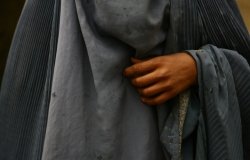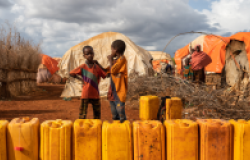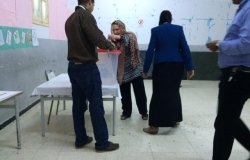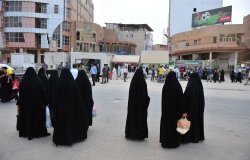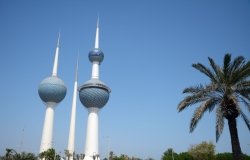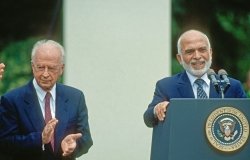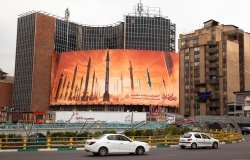Facing Terrorism: A Lebanese Perspective
Lebanon is surprisingly quiet while the region around it is literally burning. The country is facing many challenges, from the vacancy in the presidency to Hezbollah’s involvement in the fight in Syria to the presence of over one million Syrian refugees. Because of the government’s war on terror, Lebanon has succeeded in keeping a lid on the sources of tension in the country while fighting extremism and fending off terrorism. Interior Minister Machnouk, a key figure in this fight to keep the country stable and secure, discusses fighting extremism in Lebanon and how to keep Lebanon from becoming involved in the surrounding wars.
Overview
Nouhad Machnouk, Minister of Interior and Municipalities in Lebanon, discussed the security challenges facing Lebanon and his country’s counterterrorism strategy.
On March 25, 2015, the Middle East Program hosted an event “Facing Terrorism: A Lebanese Perspective” with Machnouk. Haleh Esfandiari, Director of the Middle East Program at the Woodrow Wilson Center, moderated the event.
Machnouk started by highlighting the regional context and the price Lebanon has paid since the Arab Spring. The region has witnessed the rise of extremists in different countries, and according to Machnouk, the international community cannot rely on one sectarian extreme to fight another—political solutions are essential to addressing extremism. He said ISIS can only be defeated with the inclusion of Iraqis and Syrians in the political system because airstrikes are necessary but insufficient. Regarding the effects of the Iranian nuclear issue, Machnouk stated that what concerns Lebanon is not the prospect of Iran developing nuclear weapons but that lifting sanctions would provide more money and resources for Iran to continue its meddling in the region’s affairs.
Machnouk then detailed the three-fold anti-terrorism strategy that Lebanon employs: national unity, professionalism of security forces, and theological courage. This strategy is necessary because regional events have disrupted the proper function of the system that keeps terrorism in check. He also noted that electing a new Lebanese president is a pre-condition for successful anti-terrorism efforts. In the interim, the “Future Bloc” took the initiative of dialogue with Hezbollah to reach internal agreement and foster national cohesion. As for raising the professional standards of the Lebanese army and other security forces, Machnouk argued that Lebanese security forces benefit greatly from U.S. and Saudi military aid and more efforts need to be directed toward preemption. Machnouk also believes the region is in need of a “religious revolution” to restore the spirit of peace and the true essence of Islam. He emphasized the importance of focusing on younger generations to prevent their later conversion to extremism.
Machnouk noted that fighting terrorism, however, should not distract from the Syrian humanitarian crisis. Syrian refugees are not the only challenge, but host communities suffer as well. Because of such spillover effects, for example, 30 percent of Lebanon’s population is currently Syrian. He said this is an area where the United States and the Gulf states can help and where funds need to be directed toward the municipalities, not only through NGOs. To improve the situation in the Middle East, Machnouk called on the United States to cooperate and support the Lebanese counterterrorism strategy.
In response to a question from Jane Harman, President of the Wilson Center, on the Minister’s recommendations for U.S. policy, Machnouk replied that the three top priorities are providing U.S. training for the Lebanese international security forces, upgrading preemptive technology, and increasing funds for Syrian refugees and host communities in Lebanon. Machnouk responded to a follow-up question by Esfandiari on the Gulf’s role by emphasizing the importance of increasing financial assistance for Syrian refugees and host communities. Machnouk replied to a question about the impact of a possible nuclear deal with Iran by saying that at first it may be negative but that does not mean the effects will last forever. Finally in discussing the repercussions of not having a head of state on Lebanon’s stability, Machnouk indicated that it is a regional and international matter more than it is a Lebanese one, which he said will not be resolved before a regional agreement is reached.
By: Khadiga Omar, Middle East Program
Speaker
Hosted By

Middle East Program
The Wilson Center’s Middle East Program serves as a crucial resource for the policymaking community and beyond, providing analyses and research that helps inform US foreign policymaking, stimulates public debate, and expands knowledge about issues in the wider Middle East and North Africa (MENA) region. Read more
Thank you for your interest in this event. Please send any feedback or questions to our Events staff.
